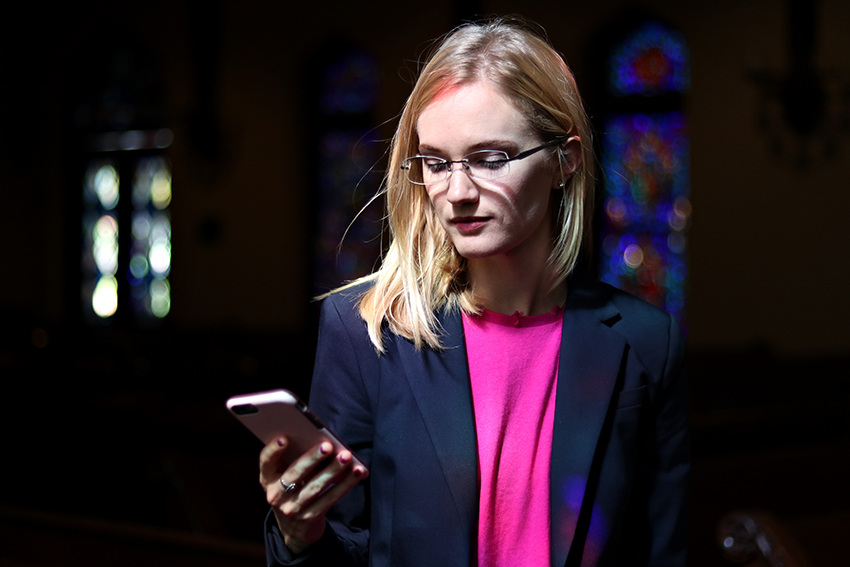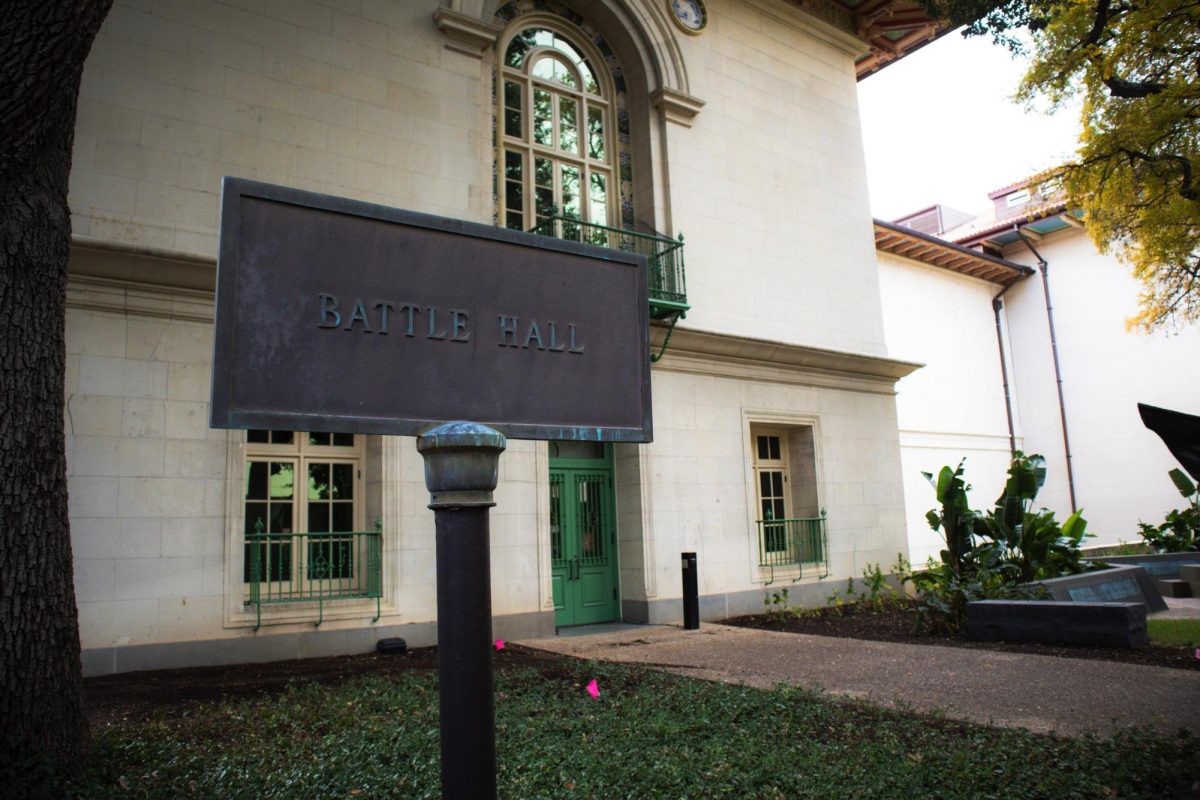When trying to sell promotional products, political communications senior Elizabeth Haynie became overwhelmed by the permits, taxes and numerous requirements necessary to start a business. To help student entrepreneurs like her, Haynie created a chatbot to navigate the world of government regulations.
“I struggled a lot as an entrepreneur,” Haynie said. “I could never get straight answers for the questions I had.”
Through text messages, Haynie’s new company, Biz Bot, provides instant guidance and answers to questions on how to make a business idea a reality. Although the internet already offers plenty of information, Haynie said the various web links and answers are often more confusing than helpful.
“When I would use the Google search engine, the answers were everywhere, and some of them weren’t even specific to Texas,” Haynie said. “It was really frustrating because I kept getting a lot of answers that weren’t relevant or didn’t give me actionable advice.”
After hearing of other students’ troubles starting or maintaining their businesses, Haynie began developing Biz Bot over the summer. Complex legal jargon and government regulations can prevent or discourage student entrepreneurs, who do not have money to hire business experts, Haynie said.
“As an entrepreneur, you’re bootstrapping it,” Haynie said. “You need to save money so you want to try to do a lot of stuff yourself.”
Supply chain management junior Rikin Shah created the furniture design and delivery company Moonlit Furniture but said establishing the business as a student was a slow learning process. Until talking with Haynie, Shah said he did not know he needed sales tax permits from both the state and the City
of Austin.
UT offers student entrepreneurs general business resources, but legal technicalities are not covered in courses or work shops, Shah said.
“If I was doing it all over again, I think Biz Bot would be very helpful,” Shah said. “It’s an avenue to get all this information that isn’t sexy enough for some organization to have an event (explaining it).”
Aspiring entrepreneurs can currently text 830-500-5774 for advice, but Haynie is still working on improving the chatbot’s interaction with users. Last Tuesday, she received a $1,000 undergraduate research grant, which she plans to use to run local product trials.
Associate communication studies professor Keri Stephens, Haynie’s research mentor, said chatbots are a growing resource in the business world.
“There seems to be this trend where people don’t want to speak to another human in real time,” Stephens said. “They don’t want to be wrong whenever they talk, and they want to plan their conversations.”
Alvin Mbabazi, a Trinity University student, owns a data analytics business and said Haynie’s Biz Bot is helpful because it can provide rapid answers anytime. If Biz Bot adds jokes and motivational quotes, Mbabazi said he thinks the bot could become a widely used resource for entrepreneurs.
“It’s almost like an encyclopedia,” Mbabazi said. “With time, I see it being much more intuitive.”
Haynie said she wants to add references to human-based businesses within the chatbot to help answer the questions Biz Bot cannot. Ultimately, Haynie said she hopes Biz Bot will empower students, freelancers and small businesses to compete against large corporations.
“This is about creating a better environment to do business,” Haynie said. “I’ve always been … a huge activist for supporting entrepreneurship and leveling the playing field for entrepreneurs.”




















